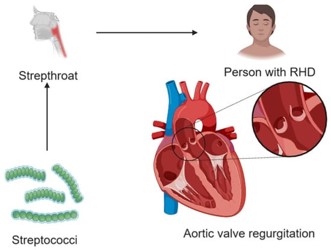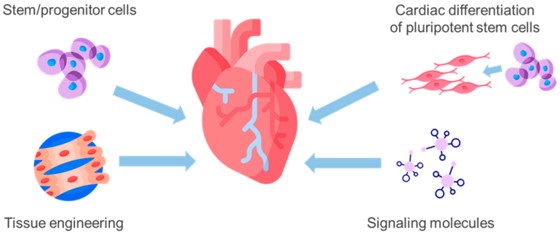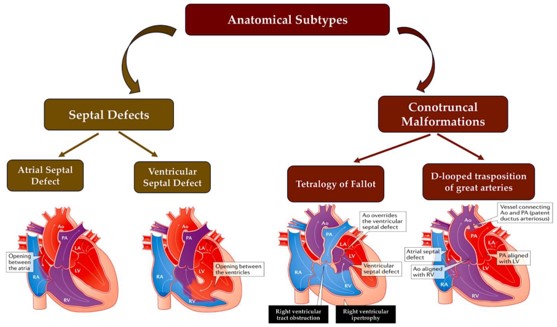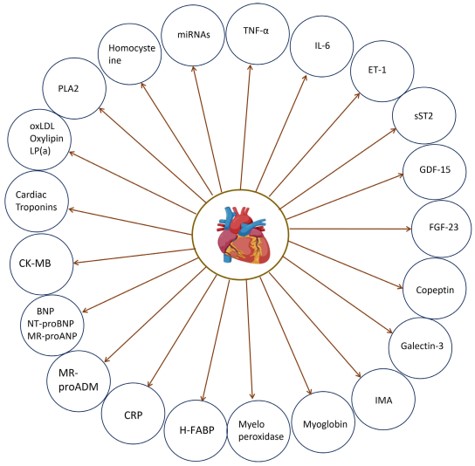Heart disease remains a pervasive and complex health challenge, affecting millions worldwide and contributing significantly to morbidity and mortality. Creative Biolabs stands out as a leader in developing and applying liposome-based therapies for heart disease, leveraging our extensive experience and innovative approach to address the complexities of cardiac conditions.
Heart diseases, as a subset of cardiovascular diseases (CVDs), are characterized by their complex pathophysiology and profound impact on patients' lives. These diseases share common risk factors, including hypertension, diabetes, and lifestyle factors, and often progress from one condition to another, further complicating treatment.
RHD arises from acute rheumatic fever and is marked by valve scarring and deformation, potentially causing stenosis or regurgitation. Typical manifestations include exhaustion, chest discomfort, breathlessness, and fluid retention. If left untreated, RHD can lead to severe complications such as stroke, atrial fibrillation, and infective endocarditis. The long-term impact of RHD underscores the need for early intervention and targeted therapies to mitigate its progression and associated complications.
 Fig.1 Ultrasound-induced mechanical effects.1,4
Fig.1 Ultrasound-induced mechanical effects.1,4
 Fig.2 Basic approaches to cell therapy for IHD.2,4
Fig.2 Basic approaches to cell therapy for IHD.2,4
Also known as coronary heart disease, IHD is caused by alterations in coronary blood flow, leading to an imbalance between myocardial oxygen supply and demand. This results in ischemia, oxidative stress, inflammation, and ultimately, irreversible myocardial cell damage. Despite advancements in treatment modalities, improving myocardial function and repairing damaged tissue remain critical areas of research for effective IHD management.
Congenital heart defect is among the most common and severe birth defects, occurring in 6-13 per 1000 live births. It results from abnormal cardiac development during the fetal period, leading to structural heart defects at birth. Congenital heart defect can be caused by genetic factors or adverse exposures during pregnancy. As patients age, they face increased risks of late complications, including arrhythmias, endocarditis, and heart failure.
 Fig.3 A simplified scheme of congenital heart defects.3,4
Fig.3 A simplified scheme of congenital heart defects.3,4
Current approaches to treating heart disease encompass a range of interventions, from pharmacological therapies such as beta-blockers, calcium channel blockers, and diuretics, to invasive procedures like coronary artery bypass grafting (CABG) and heart transplantation. Traditional treatments, though effective in many cases, often fail to address the root causes, resulting in high recurrence rates and complications. There is a clear need for targeted therapies that can deliver treatments directly to the affected heart tissue.
Cardiac biomarkers, released into the blood when the heart is damaged or stressed, offer valuable insights for early diagnosis and risk assessment, and also serve as potential targets for therapeutic interventions. By leveraging a deep understanding of cardiac biomarkers, lipid-based drug delivery systems can be employed to deliver therapeutic agents or bioactive molecules directly to damaged myocardial cells, thereby enhancing therapeutic efficacy and reducing side effects. This approach offers a more effective solution for the treatment of heart disease.
 Fig.4 Cardiac biomarkers used in the diagnostic and prognostic evaluation of cardiovascular diseases.1,4
Fig.4 Cardiac biomarkers used in the diagnostic and prognostic evaluation of cardiovascular diseases.1,4
Creative Biolabs specializes in the advancement of lipid-based drug delivery systems tailored to the specific challenges of heart disease treatment.
We are committed to advancing the treatment of heart disease through innovative liposomal technologies. If you are interested in exploring the potential of liposomes for your heart disease research or therapeutic development, please do not hesitate to contact us.
References
 For Research Use Only. Not For Clinical Use
For Research Use Only. Not For Clinical UseApplications
Online Inquiry